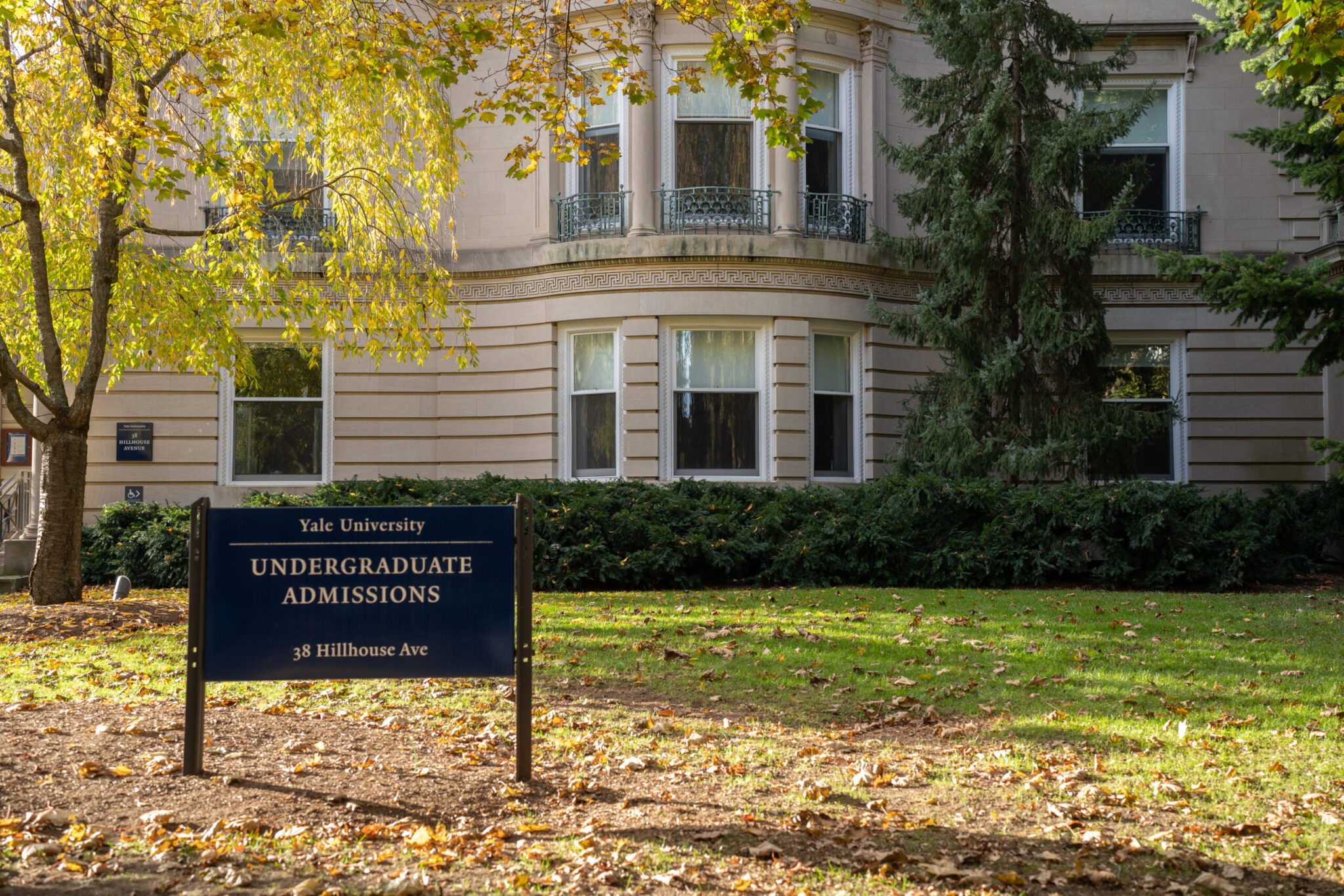Students, administrators weigh merits of viewing admissions files
Students have a right to view their admissions files under the Family Educational Rights and Privacy Act of 1974. While many students who have viewed their files saw it as a valuable learning experience, the Admissions Office sees it as a potential source of misinformation about the application process.

Ellie Park, Photography Editor
All Yale College students are entitled by law to view their admissions files at any point during their enrollment. While many students view files to sate their curiosity about the inner workings of Yale’s admissions process, some representatives from the Office of Undergraduate Admissions voiced concerns that file-viewing can form and propagate false impressions of the process.
Hannah Mendlowitz, senior associate director of undergraduate admissions, who helps oversee the University’s response to file-viewing requests, described the admissions committee’s process of reviewing applications as “a group of people sitting around having a candid conversation,” which she argued means that the full picture of why a student was admitted may not be reflected in their file.
In an email to the News, Mendlowitz described the files that students can view as “an incomplete artifact of a much larger and more complex process.”
“I understand students’ desire to peek behind the curtain, but viewing the application you submitted as a high school senior alongside very short notes that summarize the contents of that application will not reveal why the admissions committee voted to admit you,” Mendlowitz explained.
Under the Family Educational Rights and Privacy Act of 1974, which governs access to educational records, students have a right to review their admissions files within 45 days of requesting access.
Students submit a request to the admissions office, typically over email, to begin the process and receive a set of possible dates and times for viewing. All six students the News interviewed about viewing their admissions files said that it took almost the entire 45-day period to hear back from the office.
The viewing appointments take place over Zoom with a representative from the admissions office present to answer any questions. The student’s admission file is shared on the screen, and students are allowed to take notes but not pictures.
Grant Tucker ’27 agreed that viewing an admissions file is not akin to being in the room where the discussion happened but argued that it can still provide students with valuable insight.
“You don’t know what they were splitting hairs on,” he admitted. Nonetheless, he added that he sees the file as “an accurate representation” of why a student was ultimately admitted because it “makes clear to you what Yale sees in you as a future leader, what they want to see more of from you and how they see you fitting into the campus.”
Admissions files consist of a full copy of the student’s application alongside a set of comments from reviewers called a “workcard,” with notes and scores on essays and letters of recommendation. Students’ essays, recommendations, test scores and grades are all assigned scores, which students can ask the admissions office representative to interpret for them. The paragraph that alumni interviewers submit is also included.
Aidan Pulmano ’26 told the News that because his workcard contained only comments about his character and none about his test scores or grades –– an experience shared by every student interviewed by the News –– he felt more at home at Yale after viewing his file.
“Afterwards, I felt more comfortable because it made me feel like I belonged at the school,” he said. “Not just on a competence basis, but on a personality basis, too.”
In January 2016, Dean of Undergraduate Admissions and Financial Aid Jeremiah Quinlan announced that the admissions office would increase its emphasis on “authentic intellectual engagement” and “a concern for others and the common good” over quantifiable achievements. The updated process heeded recommendations from a report released by the Harvard Graduate School of Education on reforming college admissions.
On Jan. 31, Quinlan wrote to the News that he is not concerned about the effect of individual students viewing their files but does worry when students share the conclusions they draw from the experience widely with others.
Yale admissions files have become the subject of much fascination online, with dedicated Reddit threads, dozens of YouTube videos and a Buzzfeed article documenting their contents.
“When students attempt to turn that small slice of information into viral video content or the foundation of counseling for future applicants, those incorrect impressions can turn into bad advice disseminated to large audiences,” Quinlan wrote.
Of the six students the News interviewed, four said that they had given advice to prospective applicants. All of those four students said that the advice they provided was based on what they learned from viewing their files.
Mandy Buster ’25 said that she now tells applicants to focus on their Common Application; Ken Huynh ’25 said that he now advises students to focus on a singular passion. Tucker emphasizes that Yale values students who are easy to talk with, and Pulmano encourages high schoolers to write in a personable style.
“I feel that I can give better advice to people applying to college because I saw what stood out in ways that I wouldn’t have known if I hadn’t looked at the file,” Buster said.
The registrar’s office is located at 246 Church St.
Correction, Feb. 6: This article was updated to reflect that it is the Office of Undergraduate Admissions, not the University Registrar’s Office, that handles admissions file viewing requests, appointments and questions.







